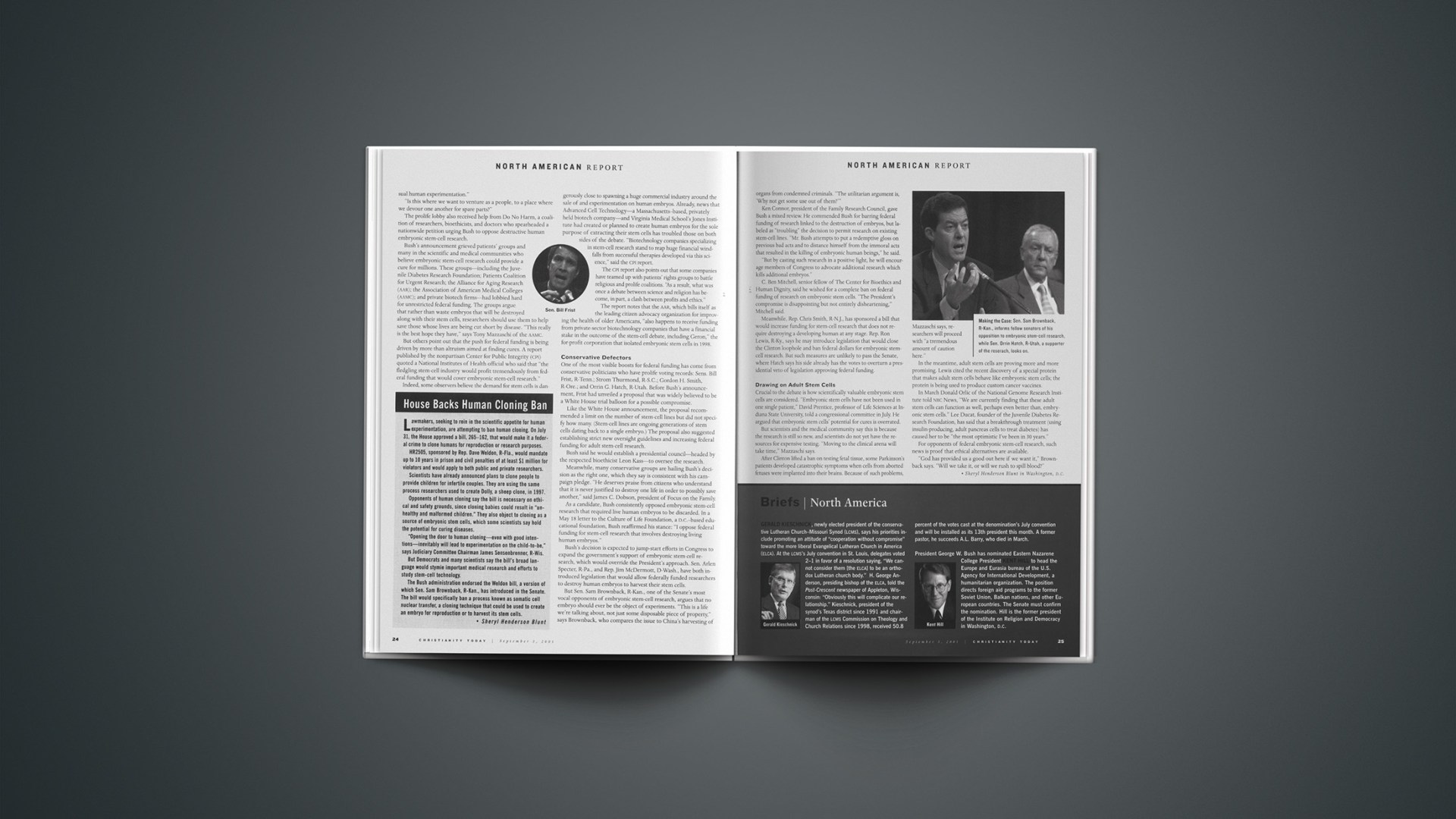HR2505, sponsored by Rep. Dave Weldon, R-Fla., would mandate up to 10 years in prison and civil penalties of at least $1 million for violators and would apply to both public and private researchers.
Scientists have already announced plans to clone people to provide children for infertile couples. They are using the same process researchers used to create Dolly, a sheep clone, in 1997.
Opponents of human cloning say the bill is necessary on ethical and safety grounds, since cloning babies could result in “unhealthy and malformed children.” They also object to cloning as a source of embryonic stem cells, which some scientists say hold the potential for curing diseases.
“Opening the door to human cloning—even with good intentions—inevitably will lead to experimentation on the child-to-be,” says Judiciary Committee Chairman James Sensenbrenner, R-Wis.
But Democrats and many scientists say the bill’s broad language would stymie important medical research and efforts to study stem-cell technology.
The Bush administration endorsed the Weldon bill, a version of which Sen. Sam Brownback, R-Kan., has introduced in the Senate. The bill would specifically ban a process known as somatic cell nuclear transfer, a cloning technique that could be used to create an embryo for reproduction or to harvest its stem cells.
Copyright © 2001 Christianity Today. Click for reprint information.
Related Elsewhere
Also appearing today on our site: “Embryos Spilt Prolifers.”The full text of the bill, its cosponsors, its status, and other information is available at the Library of Congress’s Thomas site. You can also read the transcript of House debate.
For explanations on how cloning is accomplished, see Conceiving a Clone, Science Matters, and How Cloning Works.
For news articles and opinion pieces on the cloning debate, see Yahoo’s Full Coverage.
After the House passed the bill, a team of scientists stirred everything up by saying they would do it anyway. Three scientists addressed a National Academies of Scienceconference on Aug. 7 and reveled their plans to possibly clone humans by the end of the year.
In 1997, Christianity Today’s sister publication Christian Reader took a “High Dive into the Gene Pool.”
Christianity Today recommended against human cloning in a 1997 editorial, “Stop Cloning Around.” Other articles on genetics research include:
House of Lords Legalizes Human Embryo Cloning | Religious leaders’ protests go unheeded by lawmakers. (Feb. 2, 2001)
Britain Debates Cloning of Human Embryos | Scientists want steady stream of stem cells for “therapeutic” purposes. (Nov. 22, 2000)
Tissue of Lies? | Latest stem-cell research shows no urgent need to destroy human embryos for the cause of science. (Sept. 28, 2000)
Beyond the Impasse to What? | Stem-cell research may not need human embryos after all. But why are we researching in the first place? (Aug. 18, 2000)
Thus Spoke Superman | Troubling language frames the stem-cell debate. (June 13, 2000)
New Stem-Cell Research Guidelines Criticized | NIH guidelines skirt ethical issues about embryo destruction, charge bioethicists. (Feb. 7, 2000)
Human Embryo Research Resisted (August 9, 1999)
Editorial: The Biotech Temptation (July 12, 1999)
Embryo Research Contested (May 24, 1999)










